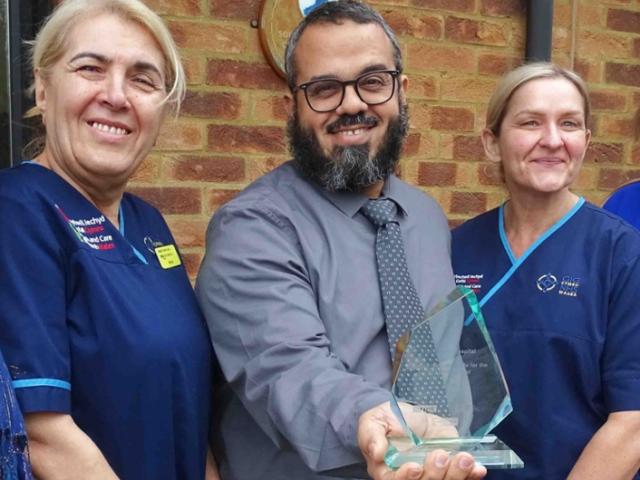
Singleton Hospital trial looks to further improve treatment for prostate cancer patients
10 April
Researchers at Singleton Hospital in Swansea are preparing to launch a follow-up study to a worldwide trial which revolutionised treatment for prostate cancer patients.
The original trial, Stampede, started 20 years ago and recruited 12,000 men worldwide by the time in closed in 2023. It aimed to provide evidence of the best way to treat men with newly-diagnosed advanced prostate cancer by exploring the potential benefits of adding a range of different treatments to standard hormone therapy.
It found that some treatments improved survival rates for men whose prostate cancer had spread, or was at high risk of spreading, ultimately changing the standard of care across the globe.
Men in Wales have a one in eight risk of getting prostate cancer, making it the most common cancer in men across the country. However, thanks to trials like this, survival rates are improving.
Tony Hesslegrave from Sardis, near Saundersfoot, was diagnosed with prostate cancer in 2013 and is on lifelong medication. Mr Hesslegrave has a hormone therapy injection from his GP every 12 weeks, which is the standard care. Through Stampede, he also receives two additional drug, Abiraterone and Prednisolone.
Mr Hesslegrave said, “I’m glad I took part in this trial. Not only for myself but to help prove that Abiraterone works, and that hopefully other men will be able to use it and help them along.
“I know other people there who have had prostate cancer, and I always pass the word around to say – get it treated.”
Singleton Hospital’s Cancer Institute was an active participant in Stampede, and among the top-recruiting sites in the UK, recruiting almost 300 patients. It was involved in several arms of the Stampede trial, each focusing on a different treatment, including chemotherapy, new hormonal agents and radiotherapy.
Stampede 2 will begin recruiting later this year. It will assess the effectiveness of multiple new interventions, including a cutting-edge form of radiotherapy called Stereo Ablative Radiotherapy (SABR).
Dr Wael Mohamed, a consultant in medical oncology based at Singleton Hospital, said: “During Stampede we gave radiotherapy to the prostate only for patients with metastatic disease. Now we want to give radiotherapy to other areas outside the prostate, if there is a limited number. It’s to try to give radiotherapy to multiple areas at the same time, to control the disease in all those areas.
“SABR involves high doses of radiation more precisely targeted. It is more precise to small volume areas, with less impact on other sites. It is all concentrated in one point.
“It has not been done in this way before, so the trial will show whether there is a real benefit.”
Funding from the Welsh Government, first via the Wales Cancer Research Network and now by Health and Care Research Wales, has supported the growth of cancer research within Swansea Bay University Health Board, where as many as 30 trials can be running at any one time.
Dr Nicola Williams, National Director of Support and Delivery at Health and Care Research Wales, said: “We're grateful for patients from across Swansea Bay University Health Board participating in the STAMPEDE trial, and the work of the team at Singleton Hospital in taking forward the next stage of the trial which complements the significant amount of research work already underway into prostate cancer diagnostics and treatments.”